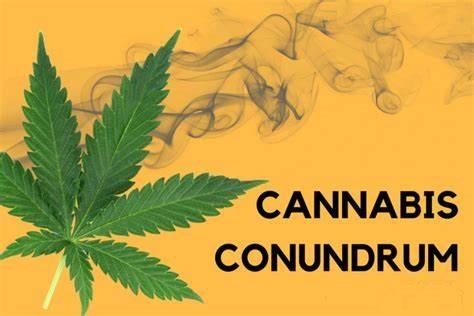Several advocates have questioned both state and central governments in India via Right To Information queries how Cannabis is harmful to the human body. The fact of the matter is – the government does not have the answer to that.
The stigma and misinformation surrounding Cannabis, birthed by authoritarian culture, has set a thick blanket over the advantages Cannabis offers – without the need for much processing.
The government must realize how much potential Cannabis has in India when regulated. If positioned right, the plant can single-handedly boost the Indian economy.
Local sales and the export of Cannabis in its various forms will entail a much-needed jolt of culture and wealth back to Indian society.
Vague and biased information won’t cut it – the use of Cannabis can only be allowed in India with the aid of solid facts.
We must remember that it is the law that is fueling the stigma, and while the rest of the world moves to take full advantage of this plant, Indian law classifies it as a narcotic.
Current Laws And Discrepancies
The Narcotic Drugs and Psychotropic Substances Act currently prohibits the cultivation, possession, sale, purchase, transfer, storage, and consumption of Cannabis in any of its forms (except as fiber or seed).
Penalties of up to Rs. 10,000, sometimes coupled with a jail term of 6 months, are the minimum punishment for carrying small quantities of Cannabis. Cultivation invites a 10- to 30-year prison sentence – which is very harsh considering the harmless nature of the plant.
The law completely ignores the circumstances of the farmers, for example, in the villages of the the Ukhrul district in Manipur. As mentioned in a study by Vino Raman, the main economic activity of the respondents in the study was Cannabis cultivation. Majority of the households involved in the study were could not depend on the market for food or other items, and 10% of the respondents earned no income other than from Ganja cultivation.
The villagers must risk their lives on a daily basis in an attempt to earn a living. All other crops grown in the village are only for domestic consumption, because the poor road connectivity and high transport costs make it impossible (Rs. 2500 – Rs. 3000 for a one way trip!) for the villagers to sell their produce to other villages. They must share produce to feed themselves and often work without incentive labour to grow Cannabis and sell it to visitors for survival.
In a lot of other places in India, communities are cut off from the world and since no other plant grows on the land, they must resort to cultivating Cannabis to feed themselves. Regulation of Cannabis can not only help the government generate funds, but it can also help push these families with their centuries-old knowledge about the crop out of poverty.
Clash Between Drugs And Cosmentics Act 1940 And NDPS Act 1985
Although the acts may not be intended to clash with one another, they pragmatically do. Here’s how.
The Parliament enacted The Drugs and Cosmetics Act in 1940, and The Narcotic Drugs and Psychotropic Substances Act was enacted later on in 1985. However, according to Section 80 of the NDPS Act, The Drugs and Cosmetics Act, 1940, is not barred. Section 80 also states that the provisions of the NDPS Act and the rules made thereunder shall be in addition to, and not in derogation of the Drugs and Cosmetics Act.
The issue here is that the Drugs and Cosmetics Act defines manufacturing, manufacturing for sale, and sale and distribution of marijuana as an offence. On the other hand, the NDPS Act makes mere possession a crime. While some facets of the law argue that the Drugs and Cosmetics Act was enacted earlier, and hence should override this provision of the NDPS Act, others believe that possession is also to be criminalized because of the NDPS Act.
There is also a lot of confusion about the provisions of the NDPS Act as it currently stands.
Section 50 of the NDPS Act states that a person can be searched in the presence of a Gazetted Officer. If the raiding team has a Gazetted Officer, the individual is to be informed of their right to be produced before another Gazetted Officer or Magistrate.
However, according to Section 41 of the act, the provisions of Section 50 only apply when the officer himself is not a Gazetted Officer.
Therefore, Gazetted Officers empowered by Section 41 of the act may freely search anybody and the individual does not have a right to be produced before another Gazetted Officer or Magistrate.
The clash between the Acts is not the only problem – the clashes within the NDPS Act also lead to unjust practices.
If we go back and look at the Ahmed versus Gujarat State case, we’ll see because of the provisions given to Gazetted Officers, Ahmed was denied his request of being taken to the Magistrate for being searched.
He was sentenced rigorous imprisonment for 10 years and imposed a fine of one lakh rupees for possession of 9 grams of charas.
This is only one example of thousands of cases where people are denied their rights.
Regulation, Legalization, And Decriminalization
To legalize something is to make something previously illegal legal. In our context, decriminalization also means the same thing.
However, to regularize something is to create a system to ensure that every party follows and is protected by the law.
Regularizing Cannabis is the only way to ensure that people buying and selling Cannabis in any form or capacity is protected.
Forming new legislation will define and protect the fortify of stakeholders – the state, the companies, the farmers, and the consumer – just like in the case of the Opium Act, 1857.
The Properties Of Cannabis
The Opium Act enables farmers to cultivate Poppy under the government’s supervision, and the fact that the plant can be processed to create a dangerous, addictive drug like heroin is accepted and dealt with.
Cannabis, on the other hand, doesn’t harm the body in any way, and the stigma that Cannabis consumption leads to insanity is baseless and plain wrong.
Only because of its narcotic-like properties, the benefits of the plant are overlooked.
Farmers must risk their well-being to procure and sell the plant, and those in pain, suffering from illnesses like epilepsy, and undergoing Cancer treatment must go without the proper medication.
India’s millennia-old history with Cannabis isn’t enough for the government to amend the law of the land.
https://www.youtube.com/embed/IgicVQTX86s
Our Way Out
Pushing for separate legislation for Cannabis seems like our best way out.
The U.S.A. and Canada have generated billions of dollars in revenue after regularizing and taxing Cannabis. Crime rates have ebbed, and medication for mental health issues, Cancer, and other illnesses are now available to anyone who needs them.
Considering India’s large workforce, and the potential for this plant to become a cash crop, we can conclusively say that Cannabis can not only help us heal better, but it can also help lift a large part of the country out of poverty.
But this is not all.
Legalizing Cannabis can help curb the drug menace by giving government control over those who procure the plant.
If the substance is controlled and the people taken good care of, the drug market will fade away on its own, driving poor farmers out of poverty on its way out.
Legalizing the recreational use of Cannabis is a long fight, but our first steps should focus on helping the country’s farmers both legally and economically.
How Individuals Can Help
Aside from the central government’s restrictions, state governments have separate laws in place that prevent the cultivation and use of Cannabis. For instance, Maharashtra has a law called “The Maharashtra Prohibition Act” that bars the cultivation or sale of substances like opium and hemp.
Advocates can try and file cases at their own levels, since getting an order from a state government will entail a domino effect.
Other advocates can then use the order as an example, and ask other state governments to lift restrictions. In this way, the plant will slowly but surely be free from stigma since many will be lifted out of poverty and pain.
Lifting the thick blanket of stigma and misinformation alone will take a lot of time, and hence, now is the time for every advocate to act and push for new legislation for Cannabis regardless of what state they’re in.






